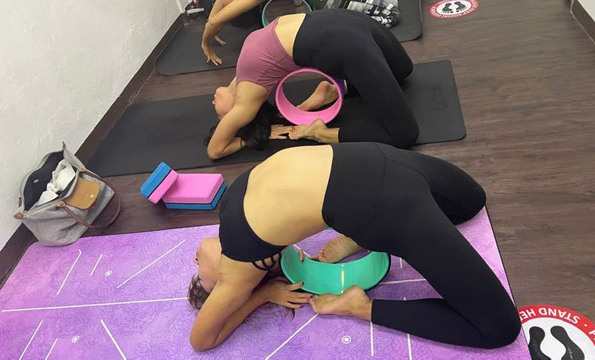Creativity is the experience of bringing forth something new; an artefact, an image, a thought, an insight. Although it is a very broad and much contested term, there is a general consensus that a defining characteristic of creativity is originality. We can distinguish creative moments from those characterised by the habitual, conditioned, repetitive, or imitative. My interest is in personal creativity – experiences and events that represent new ways of thinking or doing things; new, if not to the world at large, then at least to the person involved.
Like Raymond Nickerson, I see creativity as ‘a product of thinking’ (in Sternberg, 1999: 394). Particular modes of thinking generate creative insights, and, in my analysis, those modes of thinking are predicated on a range of factors relating not only to the mind but also to the body; indeed to the inter-related psychophysical system of the individual.
Creativity, in these terms, is an innate potential capacity, available to all of us, but easily blocked, distorted, confused or refused. Almost everyone has the capacity to enter into creative states of being, and almost everyone has more creative potential than they have yet realised.
By approaching creative process through yoga practice, we get the benefits of bringing our entire psychophysical mechanism – body, breath, mind and witness consciousness – into alignment in the service of our creative goals. Yoga provides an embodied approach to the development of awareness, mindfulness, and a whole host of principles that support creativity.
Raymond Nickerson’s research survey into enhancing creativity suggests that ‘the most basic determinants of the extent to which one is likely to realize one’s [creative] potential are affective and conative (attitudinal, motivational)’ (in Sternberg, 1999:420). In other words, the way we think about ourselves, the way we think about our creative tasks, and the way we organise ourselves in undertaking those tasks, are all instrumental in the extent to which we will experience creativity. Understanding this, and the cognitive principles and attitudes which engender creativity, enables us to better manage our own creative processes. But, as we all know from experience, merely understanding a thing intellectually is not normally sufficient to allow us to make profound changes; particularly when those changes might relate to deeply conditioned habits and beliefs.
Yoga provides a system of ‘cultivation’ (see Yuasa, 1987 and 1993). Rather than encountering ideas only intellectually, we experience them in our bodies. Yoga is a system designed to deprogramme and recondition the body, breath and mind; to develop alignment and awareness, not only on the physical plane but also through the inter-related layers of being, or koshas. Habitual patterns are brought into consciousness and reconfigured. In learning new movement protocols and pathways, we address distortions and weaknesses on the physical plane. And, because we are integrated psychophysical beings, when we ask our systems to make changes in the body, we are also asking, primarily, for changes in the mind.
Some of the ways in which yoga (including meditation) addresses the enhancement of creativity are:- developing mindfulness; the ability to self-monitor is key to accessing creative states.
- developing greater authenticity and confidence; key to finding a ‘voice’ for artistic creative work.
- generating stability, grounding and confidence.
- heightening concentration and attention.
- releasing habitual patterns, leading to greater freedom of choice.
- developing emotion management; key to dealing with the anxieties of creative process.
- developing the capacity to withstand distraction.
- accessing states of receptivity and the relaxed alertness associated with creative thinking.
- developing skills in sustaining deep introspection.
- developing compassion and non-judgement.
Disclaimer
Yoga Ayurveda Therapy is Complementary Medicine and doesn't alternates any conventional treatment.
Yoga-Ayurveda Therapy needs physical assistance which may need physical touch. You can ask teacher or therapist not to give physical touch or assistance and based on whatever you choose, our teacher or therapist will follow the instructions. Any point you want to change the preference, then please inform teacher or therapist and management in writing. You will take responsibility of your decision and will not hold Union Yoga Ayurveda responsible for any kind of damage.
All kind of Yoga Ayurveda teaching and therapy can cause certain injuries and you are accepting those injuries. Signing up for the therapy or yoga courses means that you are aware of the probable injuries.
Union Yoga Ayurveda (Union Centre Pte Ltd) and its staff are not liable or responsible for any injuries caused during the session which are visible or not visible, physical or hormonal or mental. You as client take full responsibility of your own decision and will not claim any kind of compensation in terms of money or any resources for the damage caused because of due process.
Next Post

